One of my favorite movies as a kid was My Fellow Americans (1996), starring Jack Lemmon and James Garner. Sure, I was a weird kid. But I thought the film was hilarious. I had the chance to rewatch it recently and the start of the film nearly had me in tears. It shows political presidential rivals Kramer and Douglas giving conciliation speeches when they were voted out of office. It was supposed to be funny but it rings a little harsh right now.
Modern presidential elections feel a bit terrifying, maybe even dystopian, especially the last two (and don’t forget 2000!). Naturally, I turned to books for solace. Instead of reading nonfiction books about elections, which would probably just make me more anxious, I instead chose SFF books about elections. Dystopia meets dystopia. Of course, I certainly hope our upcoming elections will bring more hope and joy than the past, but for those who need some catharsis…
Qualityland by Marc-Uwe Kling
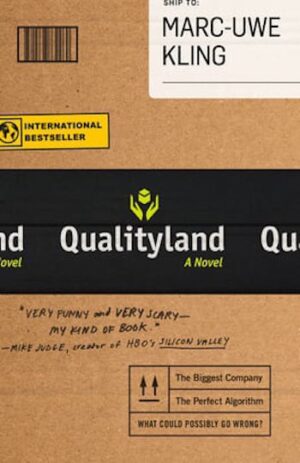
(Translated by Jamie Lee Searle) Qualityland was one of those books where the book cover sold it for me. It looks like the cardboard packages that have become a part of daily life. In Qualityland, people’s lives are ruled by algorithms and ranking systems—what you do, where you can eat and drink, even whether people can take photos of you, is dependent on your ranking from 1 to 100, based on 42 categories. TheShop knows all and sees all; notably it knows what you want sometimes before you do. Yes, I find it as terrifying as you do. This was written before the sudden obsession with A.I. in the past year too!
So if you are like Peter the Jobless (his surname taken from his parents’ job), this system is not quality for him. All he wants to do is return something that he did not want, which sends seismic tremors into the system. His adventure to return this item makes Peter realize how this system does not work for him and people like him and he wants to fix that. Peter is not the only one who wants to change the world— an android named John of Us is running for president and may have a shot. Will Peter be able to return the unwanted item? Will John of Us become president and be able to make changes to make the world a more humane place?
2040: A Silicon Valley Satire by Pedro Domingos
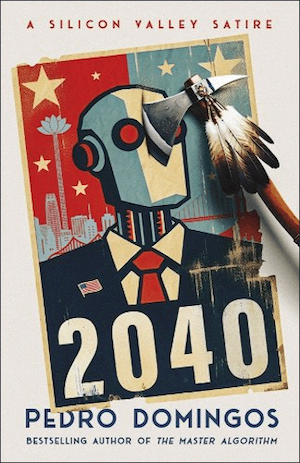
When I heard about this title, I knew it would complement Qualityland well. This time the focus is on artificial intelligence: it’s the 2040 presidential election and one of the candidates is an A.I. bot named PresiBot, made by company KumbAI. Yeah, I can totally see that as a real company name in the future. PresiBot’s opponent is a man culturally appropriating Native American culture and pretending to be a Native American chief who promises to abolish the country. It’s a great book for folks who are tired of techbro hijinks and their obsession with technology changing the world. (I’m a little meh on the whole fake Native American chief part but the rest on A.I. stuff is chef’s kiss.) My only worry with this book is that someone might actually think PresiBot might be a good idea…
Infomocracy by Malka Older
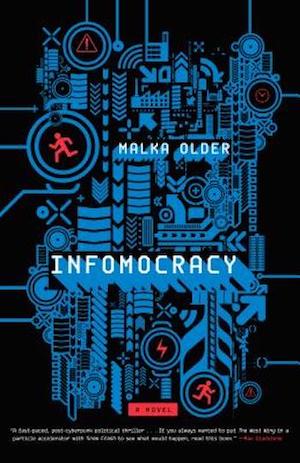
We always talk about needing informed voters but what would that look like? In Infomocracy, Information, a company, has established centenals, micro democracies containing 100,000 people, who vote every 10 years and whichever party holds the most centenals holds a supermajority. Everyone has the information they need to make their informed decision. One party, Heritage, has been in power for twenty years, since this new world order was created, and will do anything to keep it while other parties may entertain less legal or peaceful ways to gain power. The novel focuses on events around the election with characters hailing from different parties. It’s the first of the trilogy Centenal Cycle. I love how Infomocracy takes a different route about the power of information in elections.
No Harm Can Come To a Good Man by J.P. Smythe
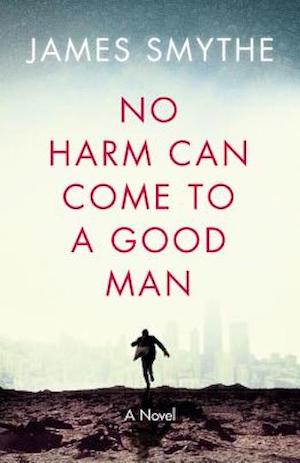
Where Qualityland focuses on TheShop that fulfills all of your desires, No Harm focuses on algorithms that make predictions… which we know are happening right now. In this book, ClearVista is the app of the moment. It searches the Internet and calculates probabilities for anything, including life and death. Lawrence Walker, a family man, decides to run for office, but gets a disturbing response from ClearVista about his chances of winning the presidency. Can ClearVista actually predict the future or does it help make that future happen? Can Walker remain intact despite the future predicted for him?
Beneath the Shine by Sarah Fine
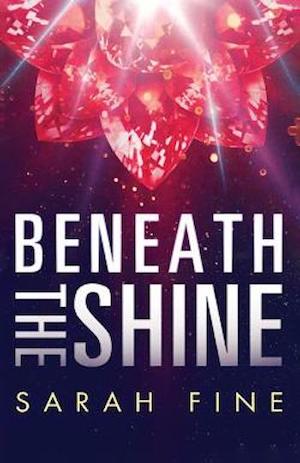
Last but not least, we have this work that has been described as a YA dystopia Scarlet Pimpernel— featuring a world where technologists control all the wealth, robots have taken people’s jobs, and the elite have smartphone-like computers in their brains. When Marguerite’s video ranting about her father’s suicide goes viral, it helps elect a new president, a populist who wants to open technology for all. While she ends up befriending the new president, her role in his election and alliance has made her a pariah at her school, filled with the kids of the technologists who are unhappy about the proposed changes. Marguerite befriends Percy who seems shallow but hides his own pain about the murders of his famous scientist parents.
Things may not be great on a micro-level, nor are they great at a national level. There’s a terrorist attack and technologists are turning up dead. Marguerite and Percy find themselves in the middle of it all. Can they find out the truth of who is behind the murders and terrorist attacks? Will they survive? Elements of this remind me a little too much of 1970s Chile (which was the focus of my undergraduate thesis).
I find it fascinating that so many SFF books on elections focus on technology and the consequences of it on our lives and politics. Let me know your favorite SFF political stories in the comments!










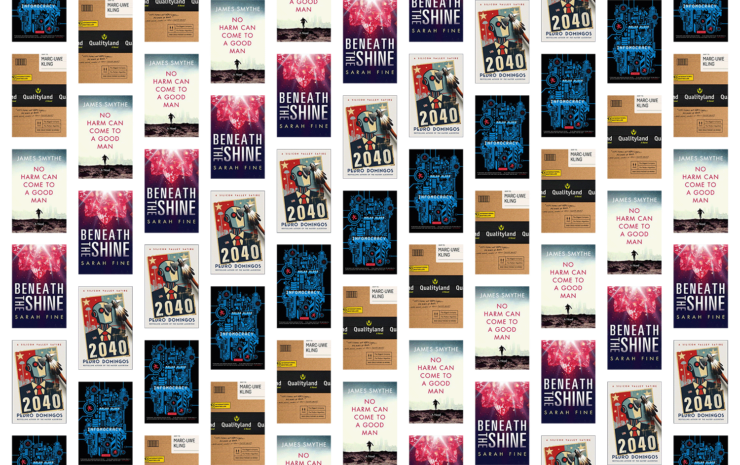
Well, for sheer bonkersness in sf political stories, it’s hard to beat Americathon. Which I saw once on late night cable. It’s not good, but has it’s moments. Good cast.
I’ve started reading the Ascension of a Bookworm series about, about an avid reader transported into the body of a little girl in a fantasy universe. One of the recurring elements is that she keeps discovering that to accomplish her big project (creating a popular fiction industry in a mostly-illiterate, quasi-feudal preindustrial society) she actually has to pay attention to and play along with local politics. Her current challenge is working out how to arrange a murder without causing too many ripples.
Bujold’s Cryoburn, one of the later Vorkosigan books, takes place on a word where people who have been cryogenically preserved still have a vote, the proxy of which is controlled by whichever corporation they’ve contracted for their maintenance. This naturally leads to shenanigans, but is hard to change, because the corporations that control the votes like things how they are. It then turns out that a number of the voters aren’t almost dead, they’re all the way dead, and further shenanigans ensue
Bruce Sterling’s Distraction is all about an election in the increasingly nearer future. Written in 1998, it postulates a future election in which decrepit infrastructure is maintained by local coalitions, crude AIs commit stochastic terrorism via spam, climate change ravages the coasts, and one of the candidates is openly in the pay of the nation’s foreign opposition…
Dammit
In John Varley’s “Good Intentions” a politician makes a deal with the devil, but the powers of Hell turn out to be no match for modern campaign techniques.
Novel or short story? I read a lot of Varley, but haven’t seen that one.
I’d recommend the 2015 comic book series “Prez” by Mark Russell and Ben Caldwell, in which a teenaged girl named Beth Ross is elected president via Twitter as a gag/meme. I really wish this series had enjoyed more issues before its cancellation.
Pretty much anything Mark Russell writes would probably qualify for this. He’s an excellent humorist/political satirist. His “Flintstones” series also had a very bleakly cynical issue about elections…
Lyda Morehouse’s Archangel Protocol centers around a presidential election in a post-war America where everyone is connected to the LINK–unless you have the bad luck to be excommunicated. Also involved: a weary ex-cop, a cool hacker, the assassination of the pope, cyber-angels, and a candidate who’s not what he seems.
It’s the first book in her AngelLINK series, the entirety of which has recently been reissued by Wizard Tower Press.
I’m surprised no one’s mentioned Peter David’s Arthur Penn novels, beginning with Knight Life, in which our archetypical hero turns up in modern Manhattan and is soon busily engaged first in running for mayor of New York City and later for the US Presidency.
If you want the interface between elections and technology, I’m surprised you didn’t include Interface by Neal Stephenson and J Frederick George (aka Stephen Bury as a joing pseudonym when it originally came out).
“There’s no way William A. Cozzano can lose the upcoming presidential election. He’s a likable midwestern governor with one insidious advantage – an advantage provided by a shadowy group of backers. A biochip implanted in his head hardwires him to a computerized polling system. The mood of the electorate is channeled directly into his brain. Forget issues. Forget policy. Cozzano is more than the perfect candidate. He’s a special effect.”
His campaign is being guided by on the spot polling of select people, but when one of the polling devices falls into the hands of a single mother driven to poverty, it completely changes the campaign.
I read it after Snow Crash and very much enjoyed it.
Seconding Interface. A great (and quick) read.
Dated, but an election is a significant part of First Lensman.
There’s a short story (the title and author – possibly Frederik Pohl – escape me) which takes the ‘One man, one vote’ concept to the extreme: US elections are decided by the views/opinions of one man/person – who is seleted and then grilled by a computer to determine the outcome.
That’s Franchise by Isaac Asimov. I believe it’s in Earth is Room Enough.
I liked Double Star by Heinlein very much; no computer schemes here, but Martians with a very rigid code of honor play a role, and how an actor gets absorbed by his role